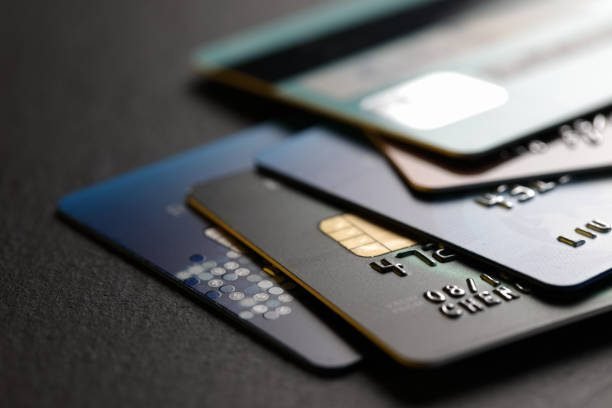Last Updated on March 9, 2024 by Nasir Hanif
In today’s world, maintaining a good credit history is essential for various financial opportunities and stability. Whether you’re planning to apply for a loan, credit card, or other financial services in the Philippines, having a clear understanding of your credit history is crucial. In this comprehensive guide, we will walk you through the process of checking your credit history in the Philippines and provide valuable insights to help you make informed financial decisions.
Table of Contents
Introduction
Your credit history is a record of your financial behavior, including your borrowing and repayment activities. Lenders use this information to assess your creditworthiness and determine whether they should approve your loan or credit application. In the Philippines, credit history plays a significant role in your financial life, affecting your ability to secure loans, mortgages, and credit cards.
Understanding and managing your credit history is the first step toward financial stability and success. This guide will cover everything you need to know about checking your credit history in the Philippines, from why it’s important to how you can improve it.
A Comprehensive Guide to Checking Your Credit History in the Philippines
Why Is Checking Your Credit History Important?
Checking your credit history is essential for several reasons:
- Loan Applications: When you apply for a loan, lenders review your credit history to determine if you’re a reliable borrower. A good credit history increases your chances of approval and may lead to better interest rates.
- Credit Card Approval: Credit card companies assess your credit history before approving your application. A positive history can result in higher credit limits and more favorable terms.
- Renting a Home: Landlords often check credit histories when evaluating potential tenants. A strong credit history can help you secure a desirable rental property.
- Employment Opportunities: Some employers may review your credit history as part of the hiring process, particularly for roles that involve financial responsibilities.
- Lower Interest Rates: A positive credit history can lead to lower interest rates on loans and credit cards, saving you money in the long run.
How to Check Your Credit History in the Philippines
Now that you understand the importance of checking your credit history, let’s explore the steps to access this information in the Philippines.
Step 1: Obtain a Credit Report
In the Philippines, there are three major credit bureaus that collect and maintain credit information: Credit Information Corporation (CIC), TransUnion, and Equifax. To get started, you’ll need to request a credit report from any of these bureaus. You are entitled to one free credit report per year, so take advantage of this opportunity.
- Contact the chosen credit bureau and request your credit report. You may need to provide personal information, such as your name, address, and identification.
Step 2: Review Your Credit Report
Once you receive your credit report, carefully review it for accuracy. Check for any errors, discrepancies, or fraudulent activities. Your credit report should include details of your loans, credit cards, and payment history.
- Verify that all the information on your credit report is correct. If you notice any inaccuracies, contact the credit bureau to dispute them.
Step 3: Understand Your Credit Score
In addition to your credit report, you will receive a credit score, which is a numerical representation of your creditworthiness. The higher your credit score, the better your chances of approval for loans and credit cards.
- Understand the factors that influence your credit score, including payment history, credit utilization, length of credit history, types of credit, and recent credit inquiries.
Tips for Improving Your Credit History
Building and maintaining a positive credit history in the Philippines requires consistent effort. Here are some tips to help you improve your creditworthiness:
- Pay your bills on time to avoid late payment marks on your credit report.
- Keep your credit card balances low and avoid maxing out your credit limits.
- Avoid opening too many new credit accounts within a short period.
- Regularly monitor your credit report for any changes or discrepancies.
- Settle any outstanding debts and work on reducing your overall debt load.
- Consider seeking financial advice or credit counseling if you’re facing challenges in managing your debt.
Frequently Asked Questions (FAQs)
A: It’s a good practice to review your credit history at least once a year. However, you should also check it before applying for significant financial products, such as loans or credit cards.
A: Yes, you can improve a poor credit history over time by making consistent, on-time payments, reducing debt, and practicing responsible financial behavior.
A: Negative information, such as late payments or defaults, can stay on your credit report for several years, typically up to seven years.
A: While it’s not necessary to check with all three bureaus, it can be beneficial to review reports from multiple sources to ensure accuracy and completeness.
A: Yes, you have the right to dispute any errors or inaccuracies on your credit report with the respective credit bureau. They are obligated to investigate and correct any verified mistakes.
A: If you suspect identity theft or fraudulent activity, immediately report it to the credit bureau and the relevant authorities to protect your financial interests.
Conclusion
Checking your credit history in the Philippines is a crucial step toward achieving financial security and accessing various financial opportunities, including “credit history check Philippines.” By understanding the process, importance, and tips for improvement, you can take control of your financial future. Remember to regularly monitor your credit history, make responsible financial choices, and seek professional advice when needed.
















